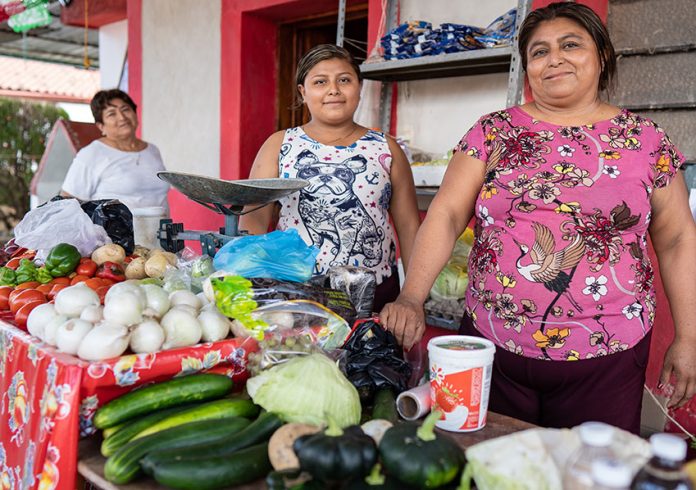It’s 8:00 am in Tenabo, Campeche, a town 45 kilometers north of the city of Campeche. Flora, a mother of four, sets up her fruit stall with her husband and children in the shady courtyard of her house just off the main square.
Amid a steady flow of customers and freshly squeezed orange juice, Flora shares her enthusiasm for President López Obrador’s Maya Train proposal.
Although freight trains pass through Tenabo on a daily basis, the line has been closed to passengers for years. Flora recalls a time when her family could board the passenger trains, granting them a wider market for their fruits and vegetables.
“Now,” she explained, “we are confined to our town with limited employment and education opportunities.”
To make her point, Flora mentions her brother, a teacher, who had to leave to find work. Now living in Chihuahua, he fears he’ll be caught in the crossfire of rival gangs and longs for the safety and calm of Tenabo.
One of her daughters, aged 17, is starting to crave the nightlife on offer in Campeche but, as any mother would, Flora worries about people from outside her community. I pointed out that I was a stranger to the town and asked if she worried about me too. No, she says, you can tell whether someone is good or bad as soon as you start talking to them.
“How much for the juice?” I asked. “Nothing,” she says, “it’s on the house.” She gives me the warmest embrace and insists that I come back to visit. Flora is definitely one of the good ones.
